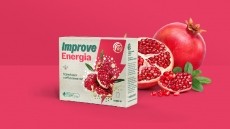Finland's vitamin D fortification working, says study
foods with vitamin D is boosting intake of the vitamin and offers
encouragement for other countries considering similar measures.
"The results indicate that the national fortification of fluid milks and margarines with vitamin D safely improved the vitamin D status of children," wrote lead author Tarja Piirainen in the European Journal of Clinical Nutrition (advance online publication, doi: 10.1038/sj.ejcn.1602506)
"This approach, in view of the novel health effects beyond bone metabolism, encourages fortification of new food sources with vitamin D or use of vitamin D supplements particularly during wintertime."
The research is topical given recent reports that vitamin D deficiency rickets among toddlers is rising in the UK, as well as news that up to 70 per cent of teenage girls may have deficient levels of the vitamin, thereby increasing the risk of osteoporosis and other problems later in life.
About 35 per cent of a mature adult's peak bone mass is built-up during puberty.
Vitamin D is synthesised in the body on exposure to sunlight and only small amounts can be obtained from food. However, recent studies have shown that sunshine levels in some northern countries are so weak during the winter months that the body makes no vitamin D at all, leading some to estimate that over half of the population in such countries have insufficient or deficient levels of the vitamin.
Fortification of specific products was made mandatory in Finland in 2003-2004, while other European countries do not allow for any fortification.
The researchers, from the Turku University Central Hospital, set out to investigate the effect of national vitamin D fortification of fluid milks and margarines on dietary intake and on blood levels of 25-hydroxyvitamin D (25(OH)D), the inactive storage form of the vitamin, in Finnish four-year-olds.
Two cohorts of children were compared - one studied in wintertime before the introduction of mandatory fortificiantion (82 children) and the other studied after the introduction (36 children). Dietary intake was assessed by four-day food records, and blood samples were taken to measure serum 25-hydroxyvitamin D levels.
Piirainen and her co-workers found that average vitamin D intake were higher for the group studied after the introduction of fortification than for the children before mandatory fortificiantion (4.5 micrograms versus 2.1 micrograms). The four-day food records showed that there was no significant difference in diets of the two cohorts.
Although only 30.6 per cent of the children ahcieved recommended vitamin D intakes after fortification, the average serum levels of the 25(OH)D were increased in this group, compared to the group studied prior to fortification (64.9 versus 54.7 nanomoles per litre).
These results show that national fortification does work, and that it safely improved vitamin D levels in a group at high risk of deficiency.
It also offers an alternative food source for fortification, with more and more studies looking at the fortification of bread and cereal products.
Indeed, Sue Fairweather-Tait, head of nutrition at the UK's Institute of Food Research, has previously told NutraIngredients.com: "Fortification, if done sensibly, is the only way to achieve optimum vitamin D levels. The best source of vitamin D at the moment is fortified cereals."
The Optiford project, an EU Framework 5 project, is an on-going collaboration between Denmark, Ireland, Poland, Finland, and Spain specifically looking at the impact of vitamin D fortification in general populations.
One of the main initiatives is to investigate the availability of vitamin D from fortified breads.
The recommended daily intake (RDA) of vitamin D in most European countries is between 5-10 micrograms.











